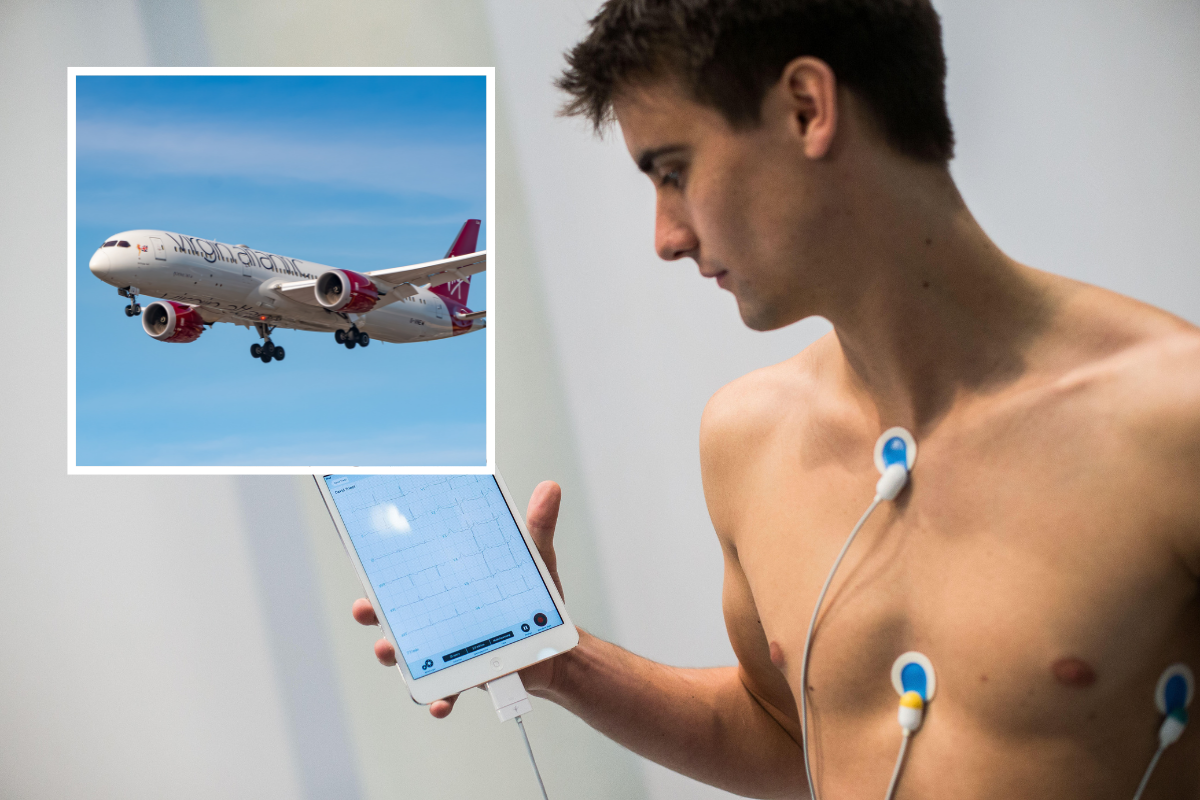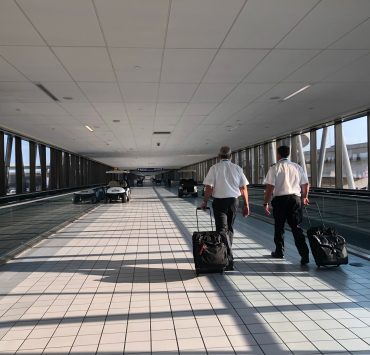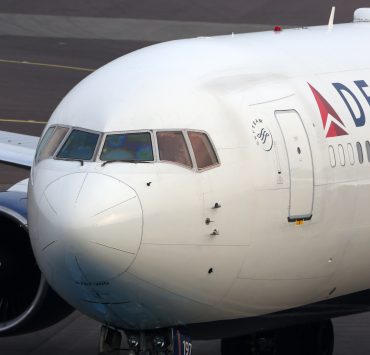
Did you know that Virgin Atlantic is the only airline in the UK with the ability to carry out an ECG at 38,000 feet? In fact, the Richard Branson-linked airline has had an entirely ECG-equipped aircraft fleet since the early 2000s, although the carrier recently upgraded its kit with the world’s smallest and lightest mobile ECG kit after its previous supplier discontinued development.
The ability to carry out a full 12-lead ECG while flying in a metal tube at speeds of 650 miles per hour is pretty advanced stuff, but it’s not without good reason. Cardiovascular emergencies are by far the single most common cause of a disruptive, costly and perhaps even unnecessary medical diversion.
This is where the ECG kit from a German medical tech provider called CardioSecur comes into play. Weighing just 50 grams, its plug-and-play mobile ECG solution can carry out a full 12-lead ECG through an iPad and then transmit the results over the plane WiFi to medical experts on the ground.
Cabin crew need minimal training to carry out an ECG using the CardioSecur platform, and to make the process even easier, the ECG requires just four pickup points on the body.
Virgin Atlantic follows the lead of German flag carrier Lufthansa which rolled out the CardioSecur platform across its long-haul fleet in 2019. Data from the ECG is automatically transmitted to a third-party medical aviation provider like Medlink or SOS International, who have doctors on standby to study an ECG and determine whether a diversion is necessary.
“Our work with CardioSecur underpins our continued commitment to customer health, which will always be our top priority,” commented Corneel Koster, Virgin Atlantic’s chief customer and operations officer.
“We were proud to be the first airline in the world to have a fully ECG-equipped fleet, and we’ve continued to remain at the forefront of aviation medicine,” Koster continued.
Following the lifting of pandemic-related travel restrictions, several airlines have reported an increase in inflight medical diversions, which are primarily being caused by people with serious and long-term medical issues no longer delaying air travel and getting out to see the world while they still can.
Cabin crew at Virgin Atlantic undergo rigorous aviation medicine training, including CPR, treating heart attacks and even childbirth.
According to the UK’s National Institute for Health and Care Excellence, immediately starting cardiopulmonary resuscitation (CPR) can double, and in some cases even treble, someone’s chance of surviving a cardiac arrest.
And early defibrillation using an Automated External Defibrillator (AED) within 3 to 5 minutes of collapse can improve survival chances even further – up to 50 and sometimes 70 per cent. Of course, as you would expect, all Virgin Atlantic aircraft are also fitted with AEDs.
Mateusz Maszczynski honed his skills as an international flight attendant at the most prominent airline in the Middle East and has been flying throughout the COVID-19 pandemic for a well-known European airline. Matt is passionate about the aviation industry and has become an expert in passenger experience and human-centric stories. Always keeping an ear close to the ground, Matt's industry insights, analysis and news coverage is frequently relied upon by some of the biggest names in journalism.









